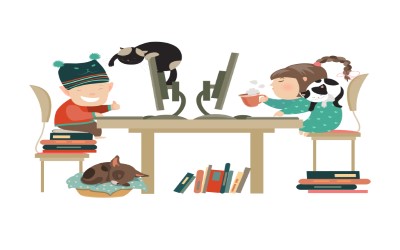Children and The Internet

The Internet is the popular hangout spot for children, pre-teens and teens. It’s an open world where anything goes, including not-so- appropriate material for children. While your child is likely online to communicate with friends and post photos on social media, play games, listen to music, and find out what Justin Bieber and their other favorite stars are up to, the dangers that lurk out there for kids is known all-to-well by parents despite the naivety of
children and such.
The Children’s Online Privacy Protection Act (COPPA) was established in the year 2000, designed to protect children under 13 years’ of age by limiting the personal information that a website can gather without parental consent. Because of this privacy protection act, many sites, including Facebook and other social media platforms, restrict use of their website to individuals over the age of 13.
If you happen to have a child that is 13 years of age or younger, it is important that you do your part to keep them protected by limiting and monitoring their online activities, ensuring they comply with the COPPA act.
Monitoring Online Activities
A number of tools are available that help you control Internet access, the websites that your kids are visiting, and online predators. While there is no 100% method of protecting kids, the use of these tools greatly diminishes the odds of your child being a victim of a crime while also providing them with Internet-education. Blocking specific websites from your child’s computer is one option that is available.
Oftentimes parents restrict adult websites, social media sites, etc. but any website that you don’t want your child to visit can be placed onto a ‘bad list’ and restricted. Setting guidelines for your children’s Internet use is also an essential step in keeping them safely protected. Your child should understand websites they are and are not allowed to visit and oblige by those rules.
It is important that your child understands that you really never know who it is behind the computer screen. They should never take inappropriate photographs or send messages as there is always a record that can be used for deceptive purposes later down the line. Personal information given out online should also be limited. This includes real name,address, home telephone numbers, etc.
Internet Safety Tips
Additional tips that can help you keep your child safe and protected while using the Internet:
- Inform yourself of how to use a computer if you don’t know already. Learn your computer as well as your child’s if they’re using a separate unit.
- Keep the computer in a common area where you can easily see what websites your child is visiting.
- Create passwords for your children so that you are aware of them at all times.
- Monitor credit cards for unusual charges.
- Monitor the amount of time that your child spends online.
- Educate your child concerning Internet safety. Alert them to the dangers that exist and how to respond should they be encountered, receive a threatening or inappropriate text or email, or otherwise feel unsafe while online.
- Learn who your children’s friends are –both online and offline.
- Block chat rooms and forums, as these sites are risky to children.






